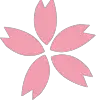Since these are Chinese novels, I want to keep the feel and culture as close to the original as possible. I also think it’s fun to learn about new cultures when reading. 🙂
So, here, I will list common used terms that I might keep the original Chinese in my translations. I will update as necessary. Feel free to ask me if there are any questions~
Ah’ (啊) Used in front of someone’s name to show closeness. Similar to the Japanese -chan.
‘Er (儿) Used at the end of someone’s name to close closeness.
Da- (大) Big. Used before someone’s full name or part of their name to show closeness.
Lao– (老) Old. Used similarly to Da.
Xiao- (小) Little. Used before someone’s full name or part of their name to show closeness.
Note: All familial titles (brother, father, auntie, grandma) can also be used to call those unrelated to you as a form of respect and/or closeness.
I will translate the familiar title in front of their names to show closeness, even if they aren’t related. (E.g. Auntie Lin, Grandpa Zhou, Brother Chen)
Paternal grandparents / Maternal grandparents (爷爷奶奶 / 外公外婆) Chinese places a huge importance on family structure and linage. Therefore, they always differentiate which side each family member comes from. In Chinese culture, when a daughter gets married, they have basically left the family and will be considered more of an outsider than a son who has married. That is why maternal grandparents have the word “outside (外)” in it, since they aren’t part of the daughter’s “new” family. This is another reason why Chinese used to value sons so much.
Older / younger cousin (堂哥姐 / 堂弟妹) This is a bit more confusing to explain. Remember Chinese places a huge importance on linage. Sometimes you will see this translated as “Older/younger brother/sister” since they are considered “siblings” in Chinese since they have the same last name. This is only used for children of your dad’s brothers. Children of your dad’s sisters and of your mom’s siblings are all called “cousin (表)” since they have a different last name.
Gong (攻) The attacker AKA the top.
Shou (受) The receiver AKA the bottom.
Face (面子) It’s similar to respect, but it’s so much more. Your honor, social standing, and how people view you are all based on face. You can earn face (gaining respect/honor) or lose face (losing respect/honor). The Chinese place a very high important on face. Everything one does is about face. If you read a lot of Chinese novels, you’ll see this word appear very often.
Face Slapping (打脸) This is very common in Chinese novels. It directly translates to getting your face slapped, but the actual meaning is a bit more complicated. There is no actual slapping involved. It’s more of a figurative thing. Going back to how much importance Chinese people place on “face,” when they are proven wrong or they lose “face” it can count as a face slapping. Common novel example: A is rich and powerful and looks down on and always bullying B, who is poor and considered a nobody. B then raises up in ranks, becomes even richer and more powerful than A. A got their face slapped.
Lighting a candle for something (为人点蜡烛) It means praying for the dead. Usually used in a joking sense like a “nice knowing you” meaning. Usually said when the character the candle (A) is being lit for does something that the person lighting the candle (B) thinks will cause their (A) death.
Water army (水军) This is kinda like a troll, but they are people hired to spam posts either positively or negatively about someone. Like a paid keyboard warrior. Usually people will hire hundreds of water army to sway the online opinion in a certain direction.
White Lotus (白莲) It’s someone who looks pure and good, but is the exact opposite on the inside.
White Moonlight (白月亮) Used to refer to something that is special to them but unattainable. Usually a first love or true love.
